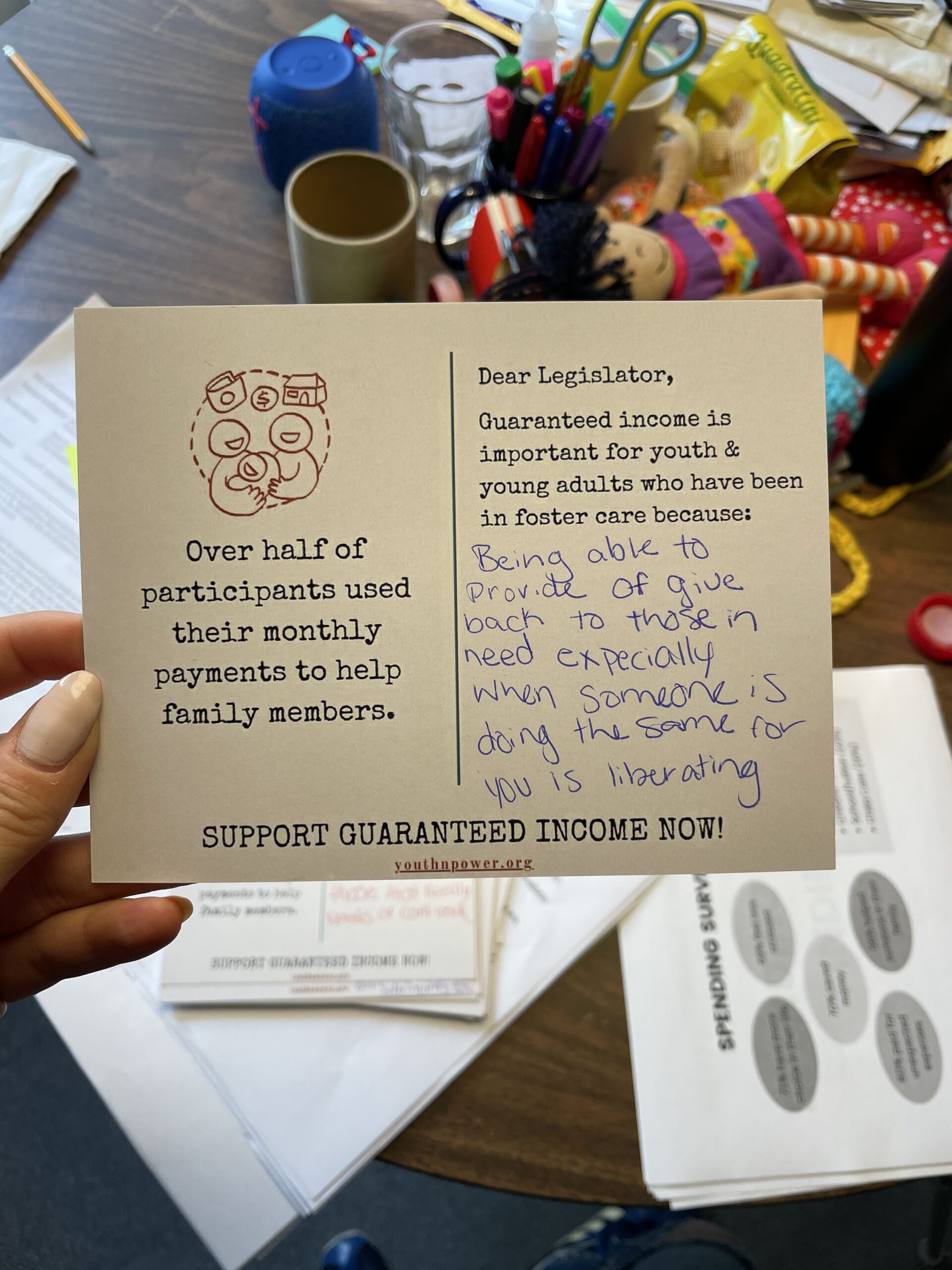
On a day in early June, a crowd of young people crammed into a room on the 6th floor at the Graduate Center. Though most of them strangers, a certain degree of familiarity hung in the air as they united around two common experiences. Each of them had “aged out” of the New York City foster care system with no legal permanency. And, they were each one of 100 former foster youth who were randomly selected to receive a guaranteed income – the first pilot of its kind in New York City. Our gathering marked their final month in the pilot and a mix of moods hung in the air. Many rightfully mourned the end of their cash assistance, anticipating what their next year would look like without it. Some shared proudly of the ways in which their year of guaranteed income had allowed them to put some plans into place for their future. And many spoke excitedly about what it would mean to turn this small-scale pilot into something larger. What about more money? For more time? For all young people who had experienced and emerged from the foster care system? What would it really take to shift from pilot to policy? What stands in our way?
The ERI/PS2 fellowship allowed me the space and flexibility to design this gathering, and to work closely with the variety of data it produced, ultimately crafting it into a forthcoming paper that seeks to dispel prevailing myths about unconditional cash recipients, deservingness, and the experience of emerging adulthood while aging out of the foster care system. As the movement for a guaranteed income swells across the United States, conservative backlash is mounting in response. My research this summer has put me on the pathway towards my dissertation, a project that will expand on these themes, interrogating the ways in which neoliberal rhetoric and familiar mechanisms of the U.S. welfare state stand to stifle, disrupt, or even co-opt the movement for a guaranteed income. It is such a rare gift as a researcher to have the time, space, and resources to work closely and collaboratively with community members, and this summer was a critical step as I seek to craft a dissertation project that will continue to center participatory and youth-led methodologies.
Author

Maya Tellman
PS2 Public Research Fellow
Maya Tellman is in her fourth year in Sociology at the Graduate Center. She is a founding member of YouthNPower: Transforming Care, an intergenerational collective working to explore, document, and uplift the power, needs, and desires of young people transitioning out of foster care as young adults in New York City.
